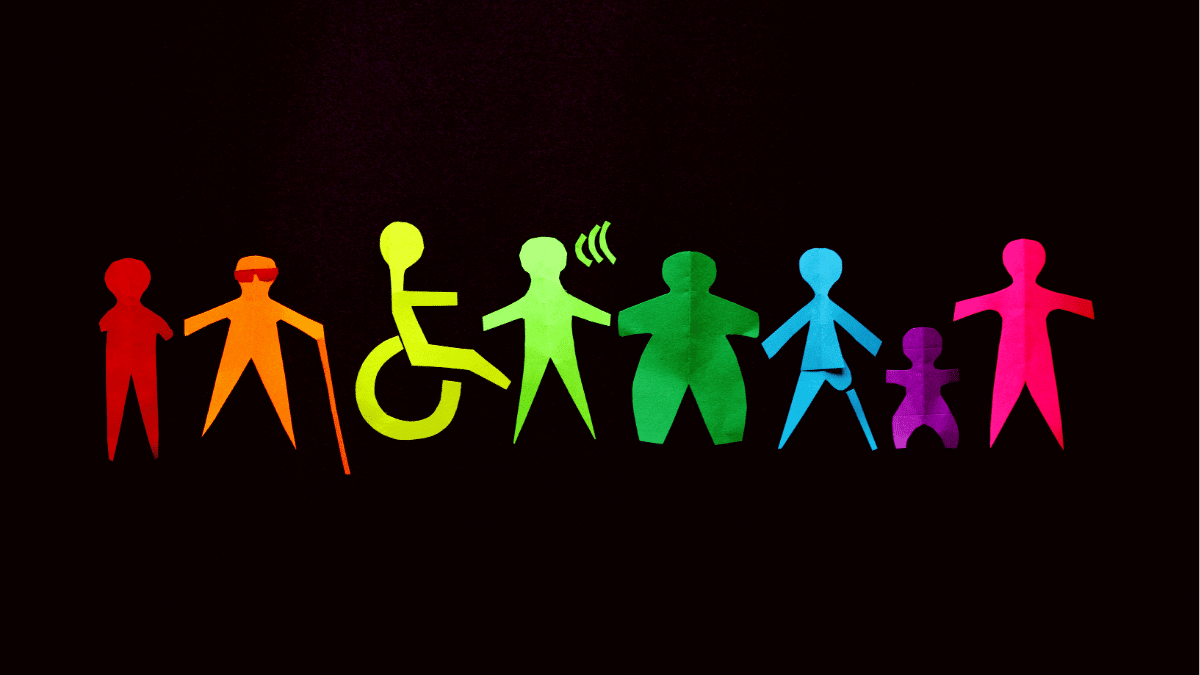Top 10 Government Support Schemes for Disabled Individuals in the UK

Living with a disability comes with its own set of problems, and it can be hard to figure out how to get the cash and practical help you need.
In the UK, the government offers a number of programs to help disabled people live more active and satisfying lives. Knowing what kinds of help are out there, like financial aid, job aid and mobility funds, is the first step to making smart choices.
This guide lists the top 10 government support schemes in the UK that help disabled people and explains what each one does and how to apply.
This guide can help you get the help you are entitled to whether you have a disability yourself or are actually helping someone who does.
Understanding Disability Rights in the UK
Before diving into specific support schemes, it’s important to understand the broader legal and societal framework that protects and empowers disabled individuals in the UK.
In places like jobs, schools, public transportation and getting to public services, the Equality Act 2010 is the main law that stops discrimination against people with disabilities.
It requires “reasonable adjustments” to make sure that everyone has the same chances to participate.
The UK government recognizes disability as both a medical and social condition, taking into account the barriers individuals face in daily life—not just the nature of their impairment.
This understanding influences how support schemes are designed and administered.
The UK has also signed the United Nations Convention on the Rights of Persons with Disabilities (UNCRPD), which strengthens the resolve to promote, protect, and ensure full human rights and freedoms for disabled people.
If applicants know about these rights, they can better fight for themselves, especially when they are trying to get benefits, housing, or help with school.
Government bodies and local councils are required by law to treat all applications equally. Knowing your rights will help you appeal decisions if you need to.
Also Read: How to Apply for Disability Living Allowance (DLA) for Children
1. Personal Independence Payment (PIP)
What is it?
PIP is a benefit for people aged 16 or over who have a long-term health condition or disability that affects their daily living or mobility.
Who is eligible?
You must have a physical or mental condition and expect your difficulties to last at least 12 months. It replaces Disability Living Allowance (DLA) for most adults.
Support offered:
- Daily Living Component (standard/enhanced)
- Mobility Component (standard/enhanced)
How to apply:
To start the application process, call the Department for Work and Pensions (DWP). You will have to fill out a form and maybe go to a health exam.
More info: gov.uk/pip
2. Disability Living Allowance (DLA) for Children
What is it?
PIP has taken the place of DLA for most people but DLA is still available for kids under 16 who need that extra help.
Who is eligible?
Children under 16 who have mobility issues or require extra care due to a disability or health condition.
Support offered:
- Care Component (based on level of care required)
- Mobility Component (based on ability to get around)
How to apply:
Apply through the DWP using the specific DLA form for children.
More info: gov.uk/disability-living-allowance-children
3. Access to Work Scheme
What is it?
A practical support grant for disabled individuals who are employed, self-employed, or about to start work.
Who is eligible?
Disabled people aged 16 or over who are in paid work or about to start employment.
Support offered:
- Special equipment or adaptations
- Travel support
- Mental health support
How to apply:
You can apply online or via telephone. The application requires details about your condition and the support you need to work effectively.
More info: gov.uk/access-to-work
4. Employment and Support Allowance (ESA)
What is it?
ESA provides financial help to those who are unable to work due to illness or disability and offers support to return to work if possible.
Who is eligible?
You must have a disability or health condition that affects your ability to work and meet the contribution or income criteria.
Support offered:
- Financial support while you’re unable to work
- Personalized support to help you return to work
How to apply:
You can apply online or by phone. You may need to undergo a Work Capability Assessment.
More info: gov.uk/employment-support-allowance
5. Blue Badge Scheme
What is it?
This scheme provides a parking permit for individuals with mobility problems, allowing them to park closer to destinations.
Who is eligible?
People with permanent disabilities, those with severe mobility issues, and some non-visible disabilities.
Support offered:
- Access to disabled parking bays
- Exemption from certain parking restrictions
How to apply:
Apply through your local council via the gov.uk website.
6. Disabled Facilities Grant (DFG)
What is it?
A means-tested grant to adapt your home to better suit your needs if you or someone living with you is disabled.
Who is eligible?
Homeowners, private tenants, or housing association tenants who need essential adaptations due to a disability.
Support offered:
- Stairlifts
- Ramps
- Widening doors
- Bathroom adaptations
How to apply:
Contact your local council for an assessment. An occupational therapist usually assesses your needs.
More info: gov.uk/disabled-facilities-grants
7. Carer’s Allowance
What is it?
A benefit for individuals who spend at least 35 hours a week caring for someone with substantial care needs.
Who is eligible?
Carers aged 16 or older who look after someone receiving certain disability benefits (e.g., PIP, DLA).
Support offered:
- Weekly payment of £81.90 (as of 2025)
- Access to National Insurance credits
How to apply:
Applications are submitted through the DWP or online.
More info: gov.uk/carers-allowance
8. Motability Scheme
What is it?
This scheme allows individuals receiving certain mobility benefits to lease a car, scooter, or powered wheelchair.
Who is eligible?
Recipients of the enhanced mobility component of PIP or DLA.
Support offered:
- Leasing of vehicles
- Insurance and maintenance included
- Adaptations for driving or passenger access
How to apply:
Visit a Motability-accredited dealership or apply online through the Motability website.
More info: motability.co.uk
9. Council Tax Reduction
What is it?
Local councils offer reductions in council tax bills for people with disabilities.
Who is eligible?
People with disabilities who live in properties that have been adapted for their needs or meet specific income criteria.
Support offered:
- Discounts or exemptions based on individual circumstances
How to apply:
Apply through your local council’s website or contact their benefits department.
More info: gov.uk/apply-council-tax-reduction
10. Universal Credit (Disability Element)
What is it?
Universal Credit is a benefit for people who are on low income or out of work, with additional elements for disability.
Who is eligible?
Disabled individuals who meet certain criteria related to their work capability and existing benefits.
Support offered:
- Additional payments based on limited capability for work or work-related activity
- Monthly financial support for housing, children, and living costs
How to apply:
Applications are made online through the Universal Credit portal.
What to Keep in Mind When Applying
Applying for government support can be a lengthy process, but preparation can help streamline it. Here are some key tips:
- Gather Documentation: Medical records, proof of income, and existing benefit statements are often required.
- Request Help: Charities like Scope and Citizens Advice can assist with forms and appeals.
- Appeal if Rejected: If you’re denied a benefit, you can usually request a mandatory reconsideration or appeal the decision.
Also Read: Top 5 Benefits for Low-Income Households in the UK
Conclusion: Finding the Right Support
Understanding the available support schemes for disabled individuals in the UK is essential for accessing the financial and practical help needed to live with greater independence.
From mobility assistance to employment support, these government schemes can significantly improve the quality of life for disabled individuals and their families.
Always check the most recent eligibility criteria and application processes through official government websites or consult a qualified adviser.
Taking the time to research and apply for the appropriate support is not just about claiming benefits—it’s about reclaiming independence and dignity.
FAQs About Disability Benefits in the UK
Can I claim more than one benefit at the same time?
Yes, many individuals are eligible for multiple forms of support. For example, it’s possible to receive both PIP and Universal Credit, depending on your circumstances.
However, some benefits may impact the amount you receive from others, so it’s best to consult with an advisor or use an online benefits calculator.
Do I need to be unemployed to qualify for disability benefits?
Not at all. People who work or are self-employed can get help from a lot of programs like Access to Work or PIP. These benefits are meant to help people become independent not just replace lost income.
How often are benefits reviewed?
It varies. Some benefits are reviewed annually, while others may require reassessment every few years. In certain cases, individuals with lifelong or deteriorating conditions may receive long-term awards without frequent reassessments.
What should I do if my application is denied?
If your application is refused, you can request a mandatory reconsideration. If this is also unsuccessful, you can appeal to a tribunal. Resources like Citizens Advice and Scope offer free guidance during this process.
Are there special rules for terminal illnesses?
Yes. The Special Rules for End of Life (SREL) process is a quick way for people that are terminally ill to get benefits faster and that too without having to go through a face-to-face review.







